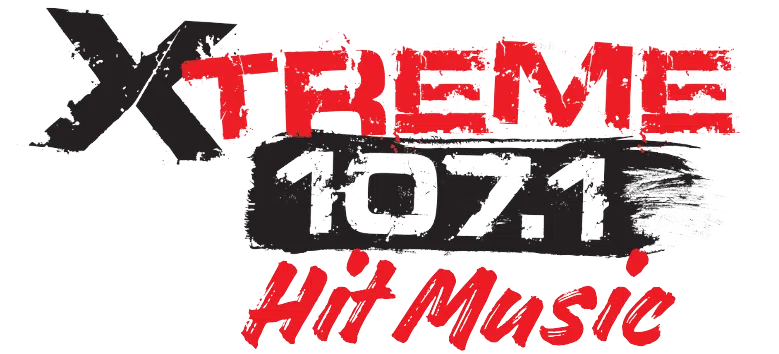MADISON, Wis. — Steve Vignali of Appleton is weighing retirement. But first, he has to deal with about $12,000 in debt from overpaid unemployment benefits that Wisconsin’s Department of Workforce Development says he owes.
“It’s too complicated,” his wife Tammy said. “They [the DWD] don’t do their follow-up, and when they don’t do their follow-up and make it clear why you are on it or why you aren’t—it’s their problem, not ours.”
The state says Steve made a mistake in his filings for unemployment. A bus driver when the pandemic struck in March, he lost his jobs as schools went virtual and got regular unemployment benefits at first. Then in August, schools returned to in-person learning and so did his employer—but Steve has a health condition and was concerned the policies for bus drivers didn’t go far enough to protect him. So, he quit.
“I told them I wasn’t coming back to work, and they understood,” he said.
The Pandemic Unemployment Assistance program covers people who had to quit jobs out of health concerns—and that’s the program he ended up on for awhile, the couple noted.
“All the sudden we get these letters,” he explained. Letters telling them they’d made a mistake, and that quitting his job for health reasons didn’t qualify him for benefits. The couple says that they’re told they owe $12,000 in combined benefits he shouldn’t have gotten—with documents threatening a warrant and impact to his credit ratings if they didn’t comply. He’d told the state on his weekly filing forms that he’d turned down work. Now, an error in the months-long process where he depended on benefits is coming back to haunt them—something the couple says they had no way of knowing was an issue.
They’re appealing, which puts a pause on further collection actions. A New Berlin-area employment attorney they’d consulted told them they had a good case after reviewing their paperwork, Tammy said.
“You can’t do that to people,” Tammy said. Both are weighing retirement, eating into savings and worrying that debt payments may have to come out of their 401K.
The Vignalis are far from alone. Another mother told News 3 Investigates she’s being pursued for $30,000 in benefits the state says is her fault. After a skyrocketing year of applicants due to the pandemic, the state paid out more than $4.8 billion in state and federal unemployment benefits in 2020 as tens of thousands lost their jobs.
Now, that’s lead to more than 42,000 people in 2021 alone facing $85.5 million in debt from overpaid benefits that the state says are from a mistake the claimant made. In 2020, almost 80,000 had overpayments set up. For comparison, that’s nearly a 200% increase from 2019 in individuals facing debt from overpaid benefits.
Unemployment debt isn’t new. But because of the pandemic, amounts are far worse.
Madison-area employment attorney Victor Forberger has been working in his field for decades—according to his Linkedin, both in Wisconsin since 2009 and as a hearing officer handling unfair labor practices for the state of Massachusetts in the early 2000s.
Debts are now commonly rising into the tens of thousands among the cases he’s handling, he said, and he claims that the state’s aggressive practices in going after the debt have gotten worse.
“What’s happened in the past year or so is the department has become extremely aggressive now on this debt collection stuff and they’re demanding much higher payments,” he said. In the past, he said, the agency would stop collection practices after a ten-year time period. “This was one of my fears with this pandemic is the amounts are so much bigger than they were with just regular straight unemployment benefits.”
The DWD disputed his claim that collection policies had become more aggressive, going so far as to ask News 3 Investigates to remove the quote from the story and calling it inaccurate.
“In March 2020 collection policies were changed to allow for more flexibility and leniency during the Pandemic to take into account claimant hardship. These policies are still in effect,” a spokesperson said in an email. “There has been no change in the write-off policy, which is based on accounting principles. Further, there has never been a 10-year limitation as one of the criteria for write-offs or cessation of collection efforts.”
Forberger said he’s handling hundreds of cases dealing with unemployment issues, and has been winning at least 90% of them.
Payment plans are short—and costly.
Most people who are getting bills from overpaid benefits are resorting to payment plans, the DWD said. And according to their internal guidance, people with thousands of dollars in debt could face monthly bills in the hundreds—outside of additional flexibility the DWD said had been implemented last March.
At first, the agency told News 3 Investigates that plans could be paid back with as little as a $25/month payment. But policy documents requested by News 3 Investigates show that $25/month option is only temporary; after no more than six months, claimants need to move to a permanent plan that can be paid out in one to three years from the agreement date. Even for non-fraud debts of $10,000 or more, like the Vignali’s $12,000—and others with far higher debts—there’s still only three years to pay it off, according to the guidance, but some flexibility is allowed.
“Flexibilities have been further expanded since the pandemic began, including extending temporary payment plans for up to six months,” a spokesperson said in an email. “These listed amounts are guidelines to help determine which policy applies and provide for flexibility in negotiating payment plans within the guidelines.”

A three-year timeline to pay off tens of thousands in debt, as Forberger indicates is becoming increasingly common among the cases he’s handling, could amount to monthly payments in the hundreds.
Warrants for unpaid debt on track to double in 2021
After a surge in unemployment claims and a record number of benefits paid out after the pandemic forced thousands out of work, Wisconsin is on track to at least double the number of warrants issued to people the state says were paid too much.
Halfway through 2021, Wisconsin had more than matched the number of warrants it issued for unpaid unemployment debt for all of last year, according to data obtained by News 3 Investigates from the DWD.
In 2020, the DWD issued 3,206 warrants for overpaid unemployment benefits. By the end of June in 2021, the department had issued 3,427 warrants, putting it on track to at least double the number of warrants issued for unemployment debt from the previous year. In 2019, before the pandemic caused a surge in unemployment claims and a backlog in claims paid out that wasn’t resolved until near the end of 2020, the department issued just shy of 3,000 warrants for unemployment debt.
The surge in warrants follows a surge in pandemic unemployment claims, after a year where the state paid out $4.8 billion in benefits—more than twelve times the amount of benefits they paid out in 2019.
Now, some are facing debts in the thousands after collection notices they’re trying to appeal—amid an appeals backlog that some attorneys fear will drag on for months or longer.
First the collections letter. If nothing happens, the warrant.
Warrants—issued to both employers and individuals—are authorized if people don’t respond to collection letters, set up a payment plan, or appeal a ruling. Warrants open the way to seize money from an employee’s bank accounts, known as an administrative levy, or take money from a state or federal tax refund.
That’s if the employee is currently working; the state says they don’t pursue collection actions for overpaid benefits if someone is still out of work or receiving unemployment benefits.
“It is important to note that most claimants repay their overpayments and a warrant is not issued,” the DWD said in an email to News 3 Investigates. Overpayments that the state decides are fraud will draw extra financial penalties, but nonfraud overpayments will not, the state said.
“As long as the claimant contacts us, we do not issue a warrant. The goal of the repayment agreement is to set up a payment plan the claimant is able to pay,” a spokesperson said in an email (DWD has repeatedly ignored requests for interviews on this topic). “We are always willing to work with the claimant if they will be late or have to miss a payment provided they contact us as the claimant agreed to do when setting up the repayment agreement.”
The issue, Forberger says, is an overly-complicated unemployment system where claimants can easily make mistakes that the state pins on them, impacting their benefits–and their debt. The collection letters come while thousands still wait for hearings to be scheduled on unemployment benefit decisions they’re appealing, and after a year when an antiquated computer system caused backlogs of thousands waiting for benefits to get paid out during the pandemic.
“It’s not going to get fixed through a new computer system,” Forberger said. “It’s going to get fixed by actual changes and how the system is administered.”
Factors the DWD says influence warrants:
- Fraud overpayments have stricter repayment rules than nonfraud.
- If the claimant receives a bill and pays, no warrant is issued.
- If the claimant is unable to pay and has contacted us and established a payment plan, no warrant is issued if payments are being made.
- If the claimant makes no effort to pay or contact us after receiving the benefit overpayment decision and subsequent monthly bills, we will issue a warrant.
- If a claimant establishes a repayment agreement but fails to adhere to it and makes no effort to contact us to request a temporary reduction in payment or to skip a payment, we will issue a warrant.
Information:
Call a DWD collections specialist: (608) 266-9701
Email a DWD collections specialist: uibencoll@dwd.wisconsin.gov
More information on overpayment debt
COPYRIGHT 2021 BY CHANNEL 3000. ALL RIGHTS RESERVED. THIS MATERIAL MAY NOT BE PUBLISHED, BROADCAST, REWRITTEN OR REDISTRIBUTED.
 97 Seven Country WGLR
97 Seven Country WGLR








